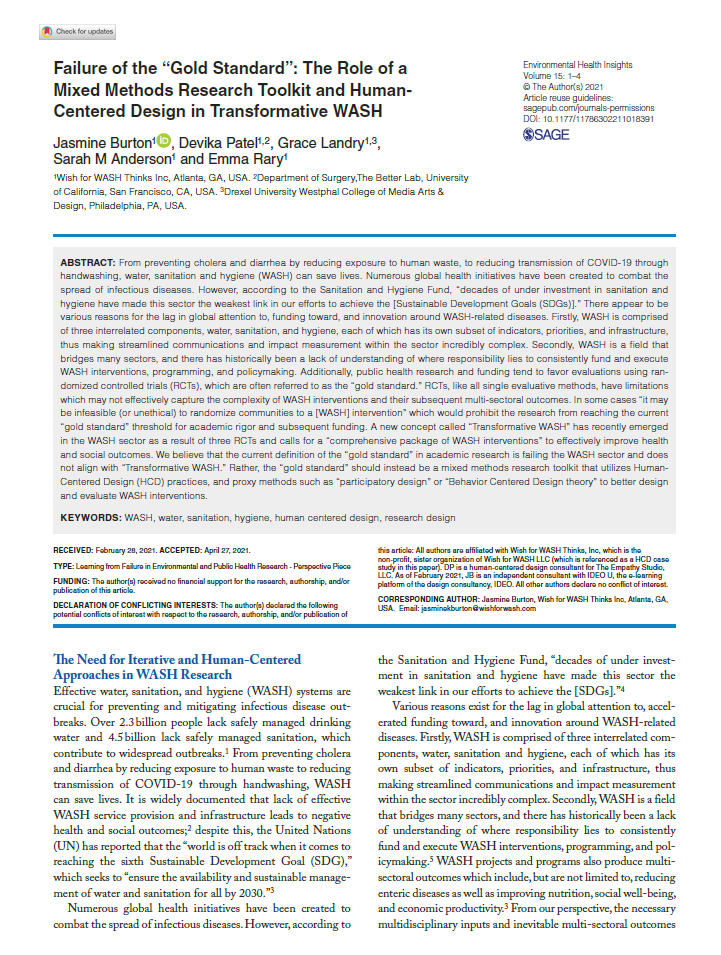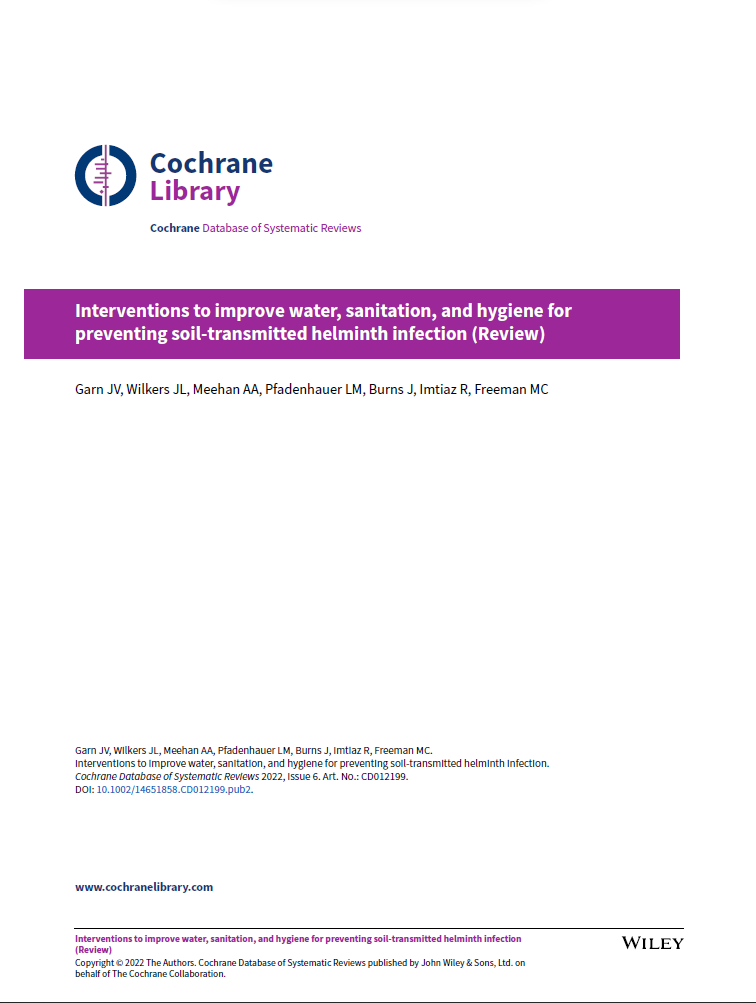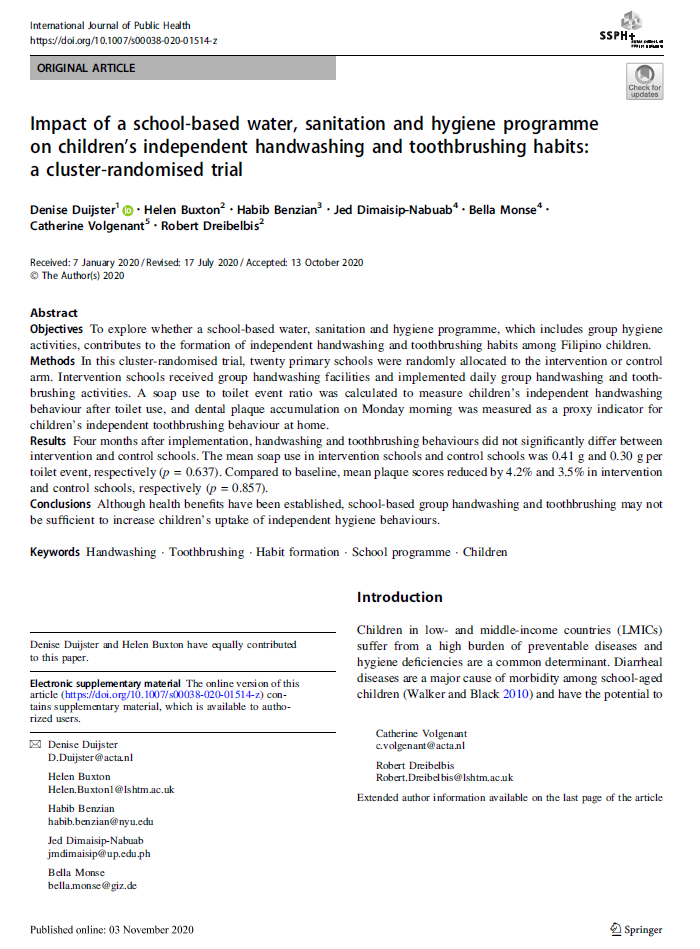
Failure of the “Gold Standard”: The Role of a Mixed Methods Research Toolkit and Human-Centered Design in Transformative WASH
From preventing cholera and diarrhea by reducing exposure to human waste, to reducing transmission of COVID-19 through handwashing, water, sanitation and hygiene (WASH) can save lives. Numerous global health initiatives have been created to combat the spread of infectious diseases.
From preventing cholera and diarrhea by reducing exposure to human waste, to reducing transmission of COVID-19 through handwashing, water, sanitation and hygiene (WASH) can save lives. Numerous global health initiatives have been created to combat the spread of infectious diseases. However, according to the Sanitation and Hygiene Fund, “decades of under investment in sanitation and hygiene have made this sector the weakest link in our efforts to achieve the [Sustainable Development Goals (SDGs)].” There appear to be various reasons for the lag in global attention to, funding toward, and innovation around WASH-related diseases. Firstly, WASH is comprised of three interrelated components, water, sanitation, and hygiene, each of which has its own subset of indicators, priorities, and infrastructure, thus making streamlined communications and impact measurement within the sector incredibly complex. Secondly, WASH is a field that bridges many sectors, and there has historically been a lack of understanding of where responsibility lies to consistently fund and execute WASH interventions, programming, and policymaking. Additionally, public health research and funding tend to favor evaluations using randomized controlled trials (RCTs), which are often referred to as the “gold standard.” RCTs, like all single evaluative methods, have limitations which may not effectively capture the complexity of WASH interventions and their subsequent multi-sectoral outcomes. In some cases “it may be infeasible (or unethical) to randomize communities to a [WASH] intervention” which would prohibit the research from reaching the current “gold standard” threshold for academic rigor and subsequent funding. A new concept called “Transformative WASH” has recently emerged in the WASH sector as a result of three RCTs and calls for a “comprehensive package of WASH interventions” to effectively improve health and social outcomes. We believe that the current definition of the “gold standard” in academic research is failing the WASH sector and does not align with “Transformative WASH.” Rather, the “gold standard” should instead be a mixed methods research toolkit that utilizes Human-Centered Design (HCD) practices, and proxy methods such as “participatory design” or “Behavior Centered Design theory” to better design and evaluate WASH interventions.


